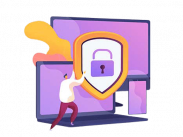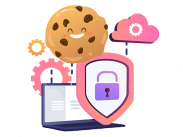A common question from new website owners is how can I get visitors to my brand new site, and ideally for free? You’ve probably spent weeks, possibly even months, preparing your website content and making sure everything’s perfect, and now that it’s live you want everyone to see it! So let's look at ideas on how to promote a new website.
TABLE OF CONTENTS
HOW TO GET YOUR WEBSITE NOTICED BY SEARCH ENGINES
When it comes to figuring out how to promote a new website, one of the very first thing you’ll want to do is to make sure that it’s easy for search engines to find your site because they are an invaluable way to get your website noticed. The higher the site ranks, the better chance of being found by users when they do Google searches.
SEO (search engine optimization) is the name given to the process of making your website attractive to search engines so that they rank it higher faster in search engine results.
There are reportedly some 200+ Google ranking factors, the exact details of which are kept secret and ever changing, but they broadly fall into 3 main categories.
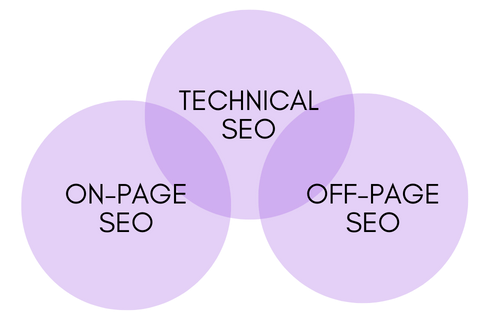
TECHNICAL SEO
This includes things like how your site is built, what type of website hosting you have, how fast pages load, whether it's mobile friendly, and so on.
Mostly your web developer will look after all this for you. One thing you can do is check that all your web pages are indexing properly on Google. On a Google type in 'site:yourdomain.com' (or .co.uk or as applicable) and the number of pages being indexed will come up.
ON-PAGE SEO
This is the process of optimizing the content on web pages for SEO. This includes certain elements that your web developer should have ensured, such as correct tagging of headings, adding alternative text for images giving a brief description, and so on.
One of the most important aspects of on-page SEO is using keywords. These are words or phrases which are used by people searching for information on a particular topic. Using the appropriate keywords in your content helps search engines identify what the subject matter of your page or post is about, and helps determine when it's appropriate to show it in search results.
Ideally you want to find keywords which have a high search volume (that's the number of searches per month), and low competition (that's the number of other web pages also trying to rank for that keyword).
Be sure to include appropriate keywords in headings, page content and meta data.
BACKLINKS
Backlinks are part of off-page SEO. They are when other websites link to your web pages in their website. They are like personal recommendation and are the best way to grow a website's authority, which will help give it priority in rankings. As a new website you won't have any backlinks, but here are some suggestions on getting them;
- create high quality content that others will want to link to organically
- do some guest blogging by offering articles to other sites and link your site in the article or in the author’s bio
- offer your product or service to influencers and hope they will review or promote it
- answer questions and leave comments on platforms like Quora and Reddit with a link to your website
Some website owners choose to buy backlinks to speed up the process - this is technically frowned upon by Google who say they may suspend any websites that does that. However there doesn't seem to be much evidence of this actually happening, and it is a popular option. If you do decide to go down this route, make sure you qualify the quality, and not get them from spam farms which only offer low quality backlinks.
LOCAL SEO
Yes, this is a fourth category of SEO being included, when it clearly stated above that we'd look at 3 main categories of SEO. Well.... Local SEO is a slight aside in that it doesn't apply for all websites. It forms part of both on-page and off-page SEO.
Local SEO is for local business, often small businesses but not necessarily, which serve a local area as opposed to nationally or internationally. Examples include restaurants, vets, hairdressers, generally with physical locations. These businesses show up in search results if someone were to do a search such as 'barbers near me' or 'barbers in London'.
To benefit form local SEO listings on Google, you need a Google Business Profile account (formerly Google My Business).
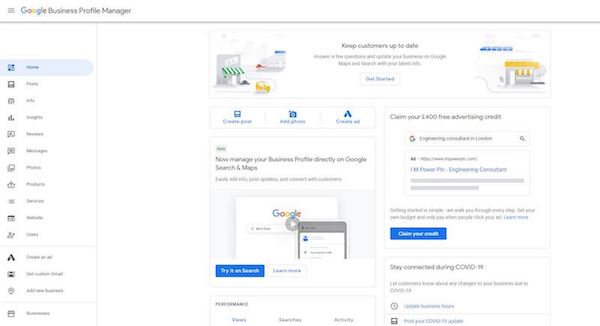
This is a free tool which Google offers so that it knows you want to be included for local searches. You will need to set up a profile and be verified at you physical address (or registered office address) and can then post content such as events or offers, opening times, use it to get reviews for clients and so forth.
Listings in local business directories, known as citations, are also a crucial tool for Local SEO, to promote your business through an online presence.
We have a whole article dedicated specifically to How to Improve Local SEO results you can check out.
PROMOTE A NEW WEBSITE WITH CONTENT MARKETING
Content is king and producing great content which is high quality and properly targeted for SEO is still one of the most effective ways to drive traffic to your site for free.
Blogging allows you to target keywords and if you provide useful content for your visitors they are more likely to convert to new customers, as you build authority and trust with them.
If you need inspiration, search forums like Quora and Reddit to see what's being discussed, or look on Google Trends to get insights into what's currently popular.
Write blogs on topics that people are discussing about your product or industry. The most commonly shared content tends to be Infographics, How to articles and Lists.
Look at what your competitors are doing and create better content than they are on the same topics.

If you can, bulk create content and schedule it to be posted at different times. Often it is much easier to keep on the same flow than to chop and change between tasks.
Re-purpose content for different platforms, for example turn your YouTube transcript into a blog post or an email.
An important part is to update your website content regularly, to keep it fresh and relevant.
Whenever you post a new blog on your website, set up a system to automatically create a social media post at the same time, and send out an email with a link to it to your mailing list.
USE SOCIAL MEDIA
Social media marketing can be a powerful tool to get new visitors to your website. The platform(s) you choose will depend on a number of things, such as suitability, prior knowledge and cost.
If for example your product is very visual, then probably a platform like Twitter might not be the best first choice to start promoting on, and Pinterest or Instagram might be better as they are more visual.
If you already have a lot of followers on a particular platform then it will probably make sense to start there, if suitable.
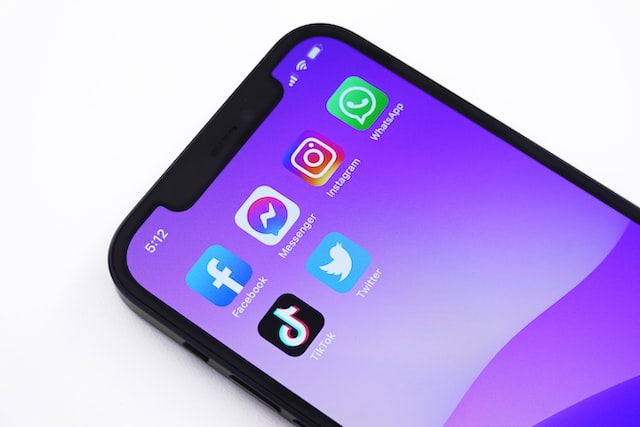
Unless you have a dedicated team, don’t try to create content for all the different social media platforms at once from the start. It will get overwhelming and you probably won’t do a good job on any of them if you stretch yourself too much. Instead, choose 1 or 2 platforms to focus on to start with, and expand from there.
Make sure you have the tools and talent immediately available for the platform(s) you want to start focusing on. If setting up a YouTube channel is going to take a lot of time to learn the technicalities of and will possibly need a lot of money spent on equipment, it might not be the best option to start with, as it may slow up the pace at which you start promoting your new website.
Whichever social media platform you decide to use, here are some general guidelines.
BRANDING
Branding should have the same feel across all your platforms to begin to build a consistent image and message.
Make sure your social media accounts you are promoting in emails or other promotional materials are well maintained and in keeping with your brand image and message. If someone is about to buy something on your website and decide to just quickly check out your Facebook page first, landing on one that looks messy, neglected or out of synch with your other messaging may lose you a client. Better not to link than to link to rubbish.
PERFECT YOUR PROFILE
Give thought to your account's name and description - it should be clear what you are promoting and what you're promising.
Include things like your values, interests, mission.
Set up business accounts because usually they offer more features.
POSTING HABITS
Post regularly. Post as often as you can but whether that's once per week or five times per day, try to keep it consistent.
Use analytics tools to work out when your content is seen the most by your target audience and has the most user engagement. Schedule post at these times so you are more likely to reach a higher number of people.
INTERACT
Don't just upload content but also interact with other content on the platform by liking, sharing and commenting on other people's posts.
If someone leaves a comment on one of your posts, be sure to reply even if it's just a like. The platforms like interaction, and we all like to be noticed too so it's a free feel good for potential followers or potential customers.

Join groups on platforms like Facebook and LinkedIn and post or share content as appropriate for the group.
USE HASHTAGS
Use the platform's systems which allows further distribution, for example on Instagram use hashtags, which allows people interested in what your topic is to find you more easily. Use branded hashtags as well as trending hashtags.
ENCOURAGE SOCIAL SHARES
Have social share links on your website and blogs so people can easily share your content.
Promote your social accounts in emails, newsletters, on other social media accounts, on business cards, in business listings and any other digital or non-digital marketing materials.
Use services like Medium and Digg to publish your content so others may see it.
Provide a link in each social media post to your website, and link to a relevant page rather than always to the Homepage – Google can get suspicious if all your links go to the Homepage.
TAKE ADVANTAGE OF EMAIL MARKETING
Email marketing is still a powerful way to promote your new website. It's easy and inexpensive, but still has the potential to be highly effective with the right strategy in place.
Make sure you have a sign up form on your website so people who want to receive news from you can leave their email address to be kept up to date via newsletters. Offer a free item such as a pdf with useful information, a discount, giveaways, to encourage people to sign up.
Until you have a mailing list, promote your website through friends, family and past customers. Send them an email and include a link, and ask them to help you promote the new website by sharing it with their network.

It has been found that people need to engage with you at least 6 times before they will make a purchase. An effective email marketing campaign and email funnels are a popular way to do this. When someone signs up to a mailing list, have a sequence of emails that they are taken through automatically. Provide useful information rather than spamming with sales blurb every time, to build trust and promote yourself as an authority in your field which they can trust.
Use an engaging and intriguing subject line for your emails to encourage people to open them.
Rather than sending bland black and white emails containing only text, there are many email editors that allow you to create interesting, fun looking or professional looking emails.
Send an email with a link whenever you post a new blog, to let your fans and followers know about it.
Send emails regularly, but don't be a spammer. For some industries, subscribers may expect emails several times per day, for example in news or financial markets services, but for most businesses this would be overkill and you'd quickly get a lot of unsubscribes. Whether you decide it's best to send out an email per day, week or month, try to keep a regular schedule so people know when to expect them.
ADD SOME PAID ADVERTISING
To get quick results, paid advertising is often seen as the easy way and the perfect solution to promote a new website. You can place Pay Per Click (PPC) ads on Google, or take out Facebook ads which are more targeted, or other social media platform which is most suitable for your niche and budget, and it doesn’t have to cost a fortune.
When writing ad copy, be sure to focus on benefits, not just features. Include emotion words, which help increase conversions. Video too has been found to convert more successfully, so if possible use that in your ads.
Use Google Adwords to find out the cost per click (CPC) price of ads – that is the price you will pay every time someone clicks on one of your ads and is sent to your website. You can set a maximum daily budget and can target higher or lower cost keywords, or a mix.
Make sure the keywords have buyer intent if you are hoping to convert visitors to paying customers rather than just website traffic.
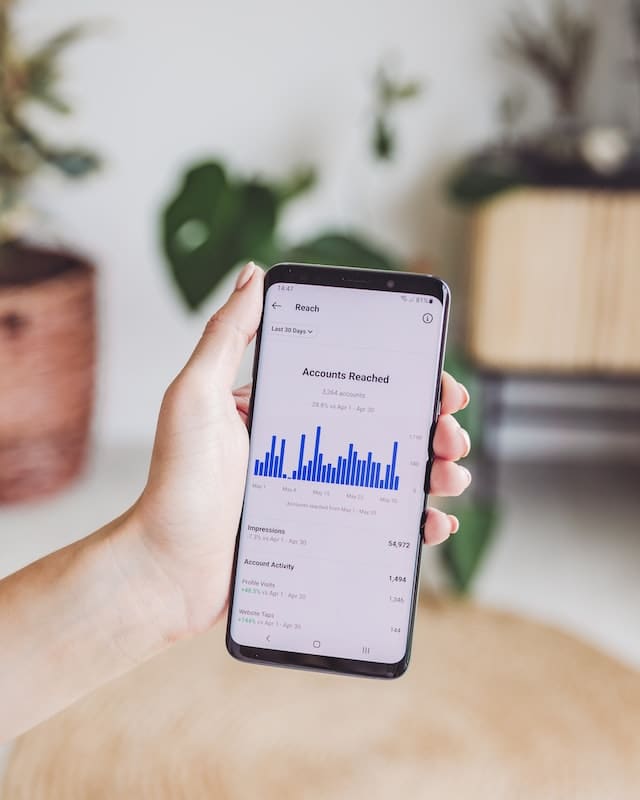
On Facebook you can set your target audience quite forensically, so for example you can choose to have your ads shown only to women between the ages of 30 and 40 years in a certain postcode. To get the best out of Facebook you need Facebook Pixel on your website – it's a piece of code your web developer will be able to help you with - it's an analytics tracking tool which records how users interact with your website and the effectiveness of ad campaigns.
THINK OUTSIDE THE BOX
LISTINGS SITES
Business listing sites are a great way to have your details out and about. The most popular are Yell, Scoot, Infobel, Thompson Local, Central Index. You'll find many more on Whitespark. Most offer some form of free advertising and then extra features for paid listings.
FORUMS
Website forums are a great source of information such as concerns of potential clients. You can post answers to questions on forums like Quora and Reddit and include a link to your website.
OUTREACH
Consider getting together with an influencer. This can be paid or not, depending on what you want them to do and how big their audience is. Choose an influencer that has the right reach for your product such as age, demographics, interests etc. and make sure you have a very specific contract about what you require them to do and how often, if you will be paying them.
Do guest blogging, also known as guest posting, which is writing a guest post for another website and in return you put a link to your website on there, so their visitors may visit your site.
SO MANY IDEAS
Join groups on LinkedIn and Facebook that are relevant to your website and business. It's a great way to share content with useful information on your website, and to network in general.
Have a launch party. Whether it can be an in-person party or a virtual one in these crazy times, it's still something worth considering, depending on type of product or service you offer.
Sponsor an event or organise a competition to get greater visibility, with your new website address on marketing material and share on social media and through your local area.
Go the traditional route and have leaflets and poster printed and spread around, especially if your business supplies a local area.
You can even do a press release to announce the website launch far and wide, particularly if the content is of specific interest.
There are so many ideas for doing your website promotion...
COMMON MISTAKES TO AVOID
DON'T PROCRASTINATE & DO NOTHING
You need to take action if you want to see results. Doing even a little bit each day is better than doing nothing.
DON'T GET OVER AMBITIOUS
Set realistic targets. Have a weekly schedule that you know you can definitely do, for example 1 email and 1 post on two social media platforms per week should be sustainable long-term.
DON'T GET DISHEARTENED
If you don't see results straight away, don't give up. This is a long game, not something that will happen overnight. Very few people go viral. Just keep on taking the necessary steps.
FINAL THOUGHTS ON HOW TO PROMOTE A NEW WEBSITE
Promoting a new website does take some time, effort and a bit of skill but it's definitely worth it! Or why bother having a website if no one is going to visit it?
Make sure the basics are covered, like fast page loading times and SEO optimized content. Broaden out to include spreading your message on social media. Speed the process up with targeted paid ads. Plan your marketing strategy around new content you can repurpose for different platforms to save on work.
So what are you waiting for?
Go start telling everyone about your new site!
How To Promote A New Website last updated October 2022

